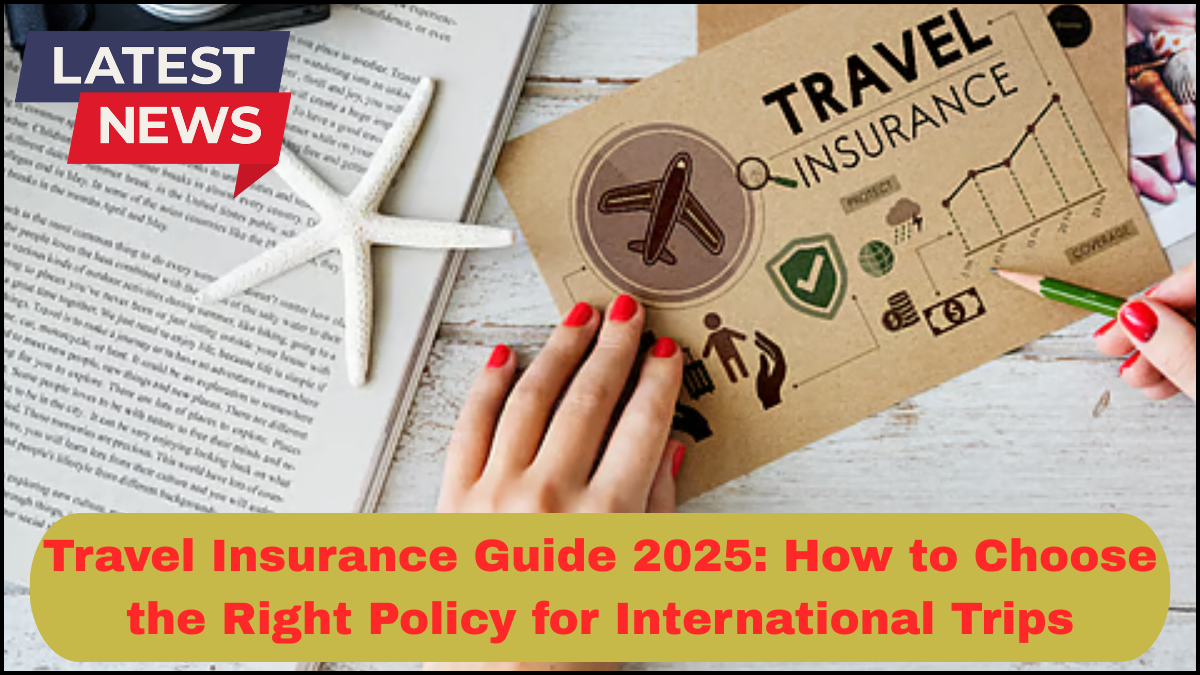Traveling internationally in 2025 means navigating new risks, updated regulations, and evolving insurance offerings. Whether you’re heading to Europe, Southeast Asia, or a remote island destination, having the right travel insurance isn’t optional—it’s essential. This guide unpacks critical travel insurance tips for 2025 trips and shows you how to make informed choices using smart policy comparison for foreign trips.

Why Travel Insurance Is More Important Than Ever
Global travel has changed. Increased natural disasters, stricter visa requirements, and rising medical costs make travel insurance a non-negotiable safety net. In 2025, many countries require proof of coverage that includes emergency medical care and COVID-19-related protection before issuing visas or permitting entry.
What’s more, trip cancellations due to political unrest, weather events, or airline disruptions are more common. The right policy ensures you don’t lose thousands due to unforeseen circumstances.
What a Good Travel Insurance Policy Should Cover in 2025
Here’s what to look for in a modern, reliable travel insurance plan:
Emergency Medical Coverage
Look for coverage that includes hospitalization, outpatient care, ambulance transport, and emergency dental treatment. For international trips, aim for at least $100,000 in medical coverage.
Trip Cancellation and Interruption
This reimburses you for prepaid, non-refundable expenses if your trip is canceled or interrupted for a covered reason like illness, natural disaster, or family emergency.
Travel Delay Protection
This covers unexpected lodging, meals, and transportation costs if your travel is delayed significantly—especially helpful for long-haul international trips where missed connections are common.
Baggage Loss and Delay
Lost luggage can derail any trip. Make sure your plan offers enough to replace essentials and personal belongings if bags are delayed or stolen.
Emergency Evacuation and Repatriation
Coverage should include transport to the nearest suitable hospital and, if necessary, repatriation back to your home country. These costs can be astronomical without insurance.
COVID-19 and Epidemic Coverage
Post-pandemic travel demands policies that explicitly cover COVID-related cancellations, medical care, and quarantines.
How to Compare Policies for International Travel
Smart policy comparison for foreign trips involves more than just looking at price tags. Here’s how to evaluate and choose the best one:
Review Coverage Limits and Exclusions
Some cheap policies may have low medical limits or exclude common scenarios like adventure sports or pre-existing conditions. Read the fine print.
Consider Destination-Specific Needs
Traveling to high-risk countries? You may need higher medical coverage or specific endorsements for political evacuation or terrorism. Conversely, travel to developed countries may mean lower overall risk but higher medical costs—requiring higher caps.
Evaluate Claim Process and Customer Support
Check reviews and testimonials. A great policy is useless if the claims process is slow or unresponsive.
Look for Add-Ons You Might Need
Many providers now offer modular add-ons: rental car damage, digital nomad coverage, or gear protection for cameras, laptops, and other valuables.
Top Travel Insurance Tips for 2025 Trips
-
Buy Early: Purchase your policy right after booking your trip. This gives you maximum cancellation coverage.
-
Use Aggregator Tools: Sites like Squaremouth or InsureMyTrip let you do side-by-side policy comparison for foreign trips with filters for trip length, age, destination, and coverage type.
-
Match Policy to Trip Type: A backpacking trip to multiple countries needs different coverage than a luxury cruise.
-
Declare Pre-Existing Conditions: Hiding medical history can invalidate your claim.
-
Check Credit Card Benefits: Some premium cards offer built-in travel insurance—but often with strict conditions and low caps.
Common Mistakes to Avoid
-
Relying solely on your airline or booking platform’s insurance upsell.
-
Overlooking coverage limits for valuables like phones, jewelry, or electronics.
-
Ignoring your destination’s visa requirements related to insurance.
-
Assuming all travel insurance covers pandemics or political unrest—it doesn’t unless specified.
FAQs: Travel Insurance Tips for 2025 Trips
Q1: When should I buy travel insurance for an international trip?
A: Buy it right after you book. That’s when cancellation coverage kicks in, and you’re protected even before departure.
Q2: Is travel insurance mandatory for international travel in 2025?
A: In many countries, yes. For example, destinations in Asia, South America, and parts of Europe now require minimum health and COVID-19 coverage.
Q3: Can I get coverage for adventure sports?
A: Yes, but standard policies don’t always include this. You’ll need to select a policy with adventure or sports add-ons.
Q4: What if I work remotely while traveling abroad?
A: Look for policies that include “digital nomad” or long-stay coverage. These often cover work-related gear and longer stays.
Q5: Are pre-existing conditions covered?
A: Only if disclosed and if you buy a policy with a waiver or specific inclusion. Don’t assume it’s automatic.
click here to learn more